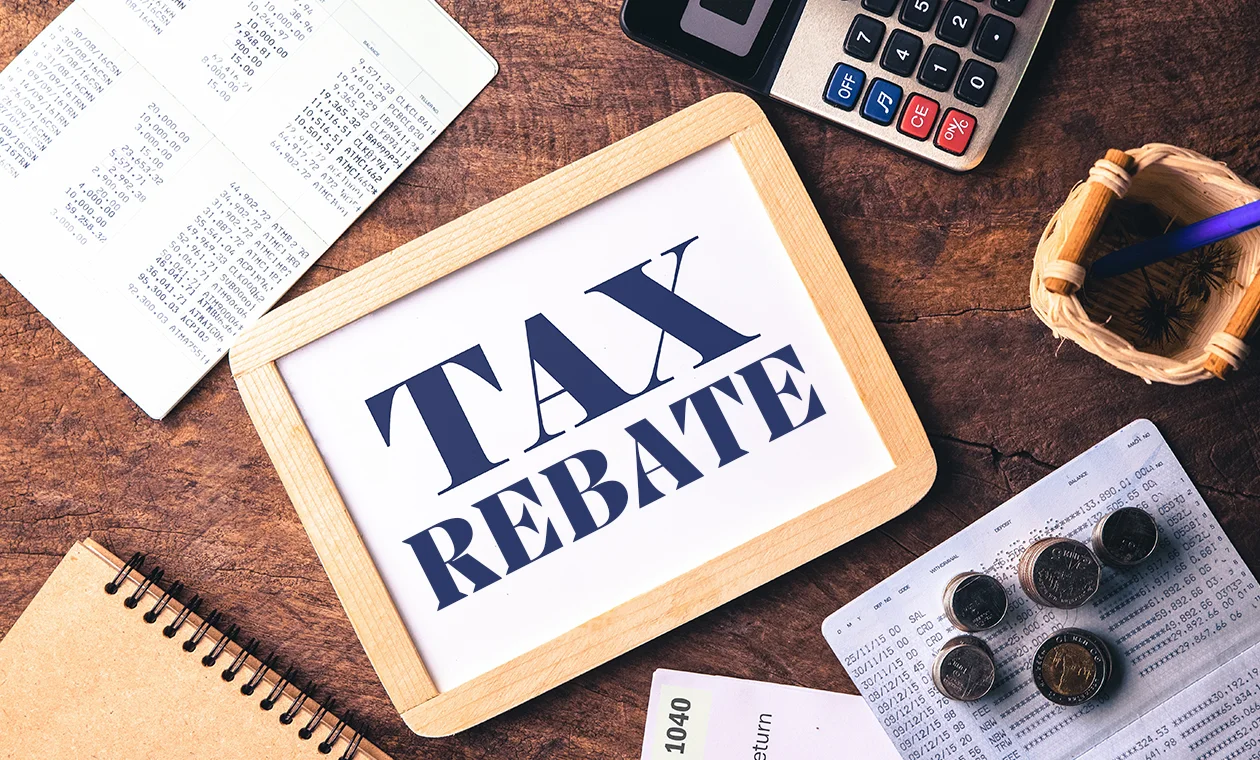The final payment for the Carbon tax rebate supposedly started on April 22, but many people kept checking their bank accounts only to find it still has not arrived. We came across several clients asking why didn’t I get my carbon tax rebate?
If you are one of the frustrated people who had kept waiting until now, learn the reasons and other crucial information about the federal carbon tax in this blog. Read on.
Contents
What is Carbon Tax?
The carbon tax (officially called federal carbon pricing system) was originally designed to encourage individuals and businesses to reduce their greenhouse gas emissions. The idea is simple: by making pollution more expensive, people are incentivized to choose cleaner alternatives.
However, the Canadian government recognized that this could create an additional financial burden on households. To address this, they introduced a tax-free payment called the Canada Carbon Rebate (CCR), formerly known as the Climate Action Incentive Payment (CAIP), discussed more below.
What is the Canada Carbon Rebate?
The Canada Carbon Rebate is a tax-free benefit paid by the federal government to eligible individuals and families to help offset their costs associated with the pollution pricing. This is a rebate mechanism, not a traditional tax refund, meaning it is a direct payment designed to return the proceeds collected from the carbon tax to households.
Historically, the carbon tax rebate payment dates have been paid quarterly.
However, from April 1, 2025, the government ceased the application of the federal fuel charge, which was the consumer-facing component of the federal carbon pricing system. This means that there will no longer be quarterly CCR rebates after the final payment for the 2024 tax year.
When is the Next Carbon Tax Rebate?
The final carbon tax rebate payment dates 2025 payment started on April 22. You would have received this final payment if you filed your 2024 income tax return electronically no later than April 2 this year.
However, even if you filed after April 2, you would still receive your final payment once your 2024 tax return is assessed by the Canada Revenue Agency (CRA).
This is why if you are still expecting a payment, there may be several reasons. But first, see if you were eligible.

Does Everyone Get the Carbon Tax Rebate?
Not everyone in Canada is eligible for the federal rebate. Canada carbon tax rebate eligibility mainly depends on your province of residence. The federal rebate applies to you if you are a resident of any of these provinces:
- Alberta
- Manitoba
- New Brunswick
- Newfoundland and Labrador
- Nova Scotia
- Ontario
- Prince Edward Island
- Saskatchewan
British Columbia, Quebec, and the Northwest Territories have their own provincial carbon pricing programs, such as B.C.’s carbon tax or Quebec’s cap-and-trade system. As a result, residents of these provinces and territories do not receive the federal rebate.
Aside from geographical location, who gets carbon tax rebate? Individual criteria also apply:
- Must be a resident of Canada for tax purposes on the first day of the payment month and the last day of the previous month.
- Be 19 years of age or older.
- If under 19, you might still be eligible if you have a spouse or common-law partner, or if you are a parent who lives with their child.
- Residents of small and rural communities in eligible provinces (with their fewer public transit options and greater reliance on personal vehicles) receive an additional 20% rebate supplement.
- If you have a child under 19, they may be eligible if they live with you and you are primarily responsible for them (and if they were registered for the Canada Child Benefit (CCB) or GST/HST tax credits).

Why Didn’t I Get My Carbon Tax Rebate?
It can be frustrating when your expected rebate payment does not arrive. Here are the most common reasons why you might not have received your federal rebate:
You Have Not Filed Your Tax Return
So far, this is the most frequent reason for missing payment. The CRA uses the information from your annual tax return to determine your eligibility for the rebate. Even if you had no income for the year, you must file your tax return to receive your Canada Carbon Rebate.
If you have not filed your 2024 tax return (or previous years’ returns), the CRA simply does not have the necessary information to process your payment.
Direct Deposit Issues
The CRA primarily issues Canada Carbon Rebate payments via direct deposit. If your banking information is incorrect, outdated, or you are not signed up for direct deposit, your payment could be delayed or sent by cheque.
Cheques take longer to arrive and can sometimes get lost in the mail. Always ensure your direct deposit information is up to date with the CRA through your “My Account” online portal.
Moved Provinces
Your eligibility for the federal rebate depends on which province you reside in. If you recently moved from an eligible province (like Ontario) to one with its own carbon pricing system (like British Columbia or Quebec), you would no longer qualify for the federal rebate. Similarly, if you moved to an eligible province, it might take some time for the CRA to update your records, causing a delay.
Eligibility Changes
Life changes can impact your rebate eligibility, such as:
- Turning 19 (making you an individual recipient) or reaching State Pension age.
- Changes in your marital status (e.g., getting married or separating) can affect the household calculation for the rebate.
- A child turning 19, a child no longer living with you, or changes in shared custody arrangements can alter the child benefit portion of your rebate.
Debt to the CRA
If you owe money to the CRA for outstanding taxes, previous overpayments of government benefits, or other government debts, your Canada carbon rebate may be used to offset that debt first. This is a common reason why a payment appears “missing” when, in fact, it has been applied to an outstanding balance. You should receive a notice from the CRA if this occurs.
Late Filing
Even if you had eventually filed your tax return, filing it late, especially past April 2 this year, will result in a delayed payment. The CRA must first assess your tax return to determine your eligibility and the correct rebate amount before issuing the payment.
Technical Glitches or Processing Delays
While less common, sometimes technical issues or high volumes of processing at the CRA can lead to temporary delays in payment distribution. If you have waited a reasonable time (e.g., 10 business days after the expected payment date) and confirmed none of the above reasons apply, this might be a factor.
Not in an Applicable Province
As mentioned above, if you reside in British Columbia, Quebec, or any of the territories, you are not eligible for the federal carbon rebate. These jurisdictions have their own carbon pricing mechanisms, and therefore, their residents do not receive this particular federal rebate.
How Much is Carbon Tax Rebate?
The amount of Canada carbon rebate you receive depends on several factors:
- baseline rebate amount – varies by province
- number of adults and children in your household
- if you live in a small or rural community in an eligible province – additional 20% supplement on top of the baseline amount as discussed above.
Here are some samples of individual CCR payments in various provinces starting April 22:
- Newfoundland and Labrador: $149
- Prince Edward Island: $110 (includes rural supplement)
- Nova Scotia: $110
- New Brunswick: $165
- Ontario: $151
- Manitoba: $150
- Saskatchewan: $206
- Alberta: $228
The above amounts were for a single individual. Larger families would receive higher amounts, with specific figures for spouses/common-law partners and eligible children.
What to Do If You Didn't Receive Your Rebate
If you have identified a potential reason for your missing CCR payment, here are the steps you can take:
Check Your CRA My Account
Your “My Account” portal on the CRA website is your primary tool. Log in to:
- Verify Payment Status – see if a payment was issued, when, and how (e.g., direct deposit or cheque).
- Update Direct Deposit Information – ensure your banking details are accurate.
- Review Your Benefit & Credit Payments – check for any applications of your rebate towards outstanding debts.
- Sign up for Notifications – the CRA offers email notifications when benefits and credits are deposited.
Review Your Tax Return
Double-check your filed 2024 tax return (and any relevant prior years) for:
- Accuracy – ensure all personal information, including your address, is correct.
- Rural Supplement – if you believe you qualify for the rural supplement, ensure you indicated this on your tax return.
- Filing Status – confirm your marital status is correctly reflected, as this affects household calculations.
Contact the CRA
If you have checked your “My Account” and reviewed your tax return and still could not find a reason for the missing payment, contact the CRA. However, always wait at least 10 business days after the expected payment date before calling, as processing times can vary. Have your Social Insurance Number (SIN) and relevant tax information ready.
Seek Professional Tax Advice
For more complex situations, or if you are unsure about your eligibility or tax filing requirements, consulting a qualified tax professional can be invaluable. Legend Fusions can help you review your tax situation, understand the nuances of the law, and assist with any necessary adjustments or inquiries with the CRA.
Legend Fusions is here to guide you on this most common query Canadians are facing these days, from why didn’t I get my carbon tax rebate to other pressing inquiries. Contact Legend Fusions today!

Jeffrey Ross
Jeffrey Ross is an experienced tax accountant focused on US-Canada cross-border taxation, with over three years in the industry, including a key role as client manager at a Canadian tax firm. He provides expertise in corporate and personal tax planning, specializing in non-resident tax, capital gains, CRA and IRS compliance, and retirement planning. Known for his personalized approach, Jeffrey is dedicated to guiding clients with clear, practical advice tailored to complex tax scenarios, aligned with the evolving tax laws.

